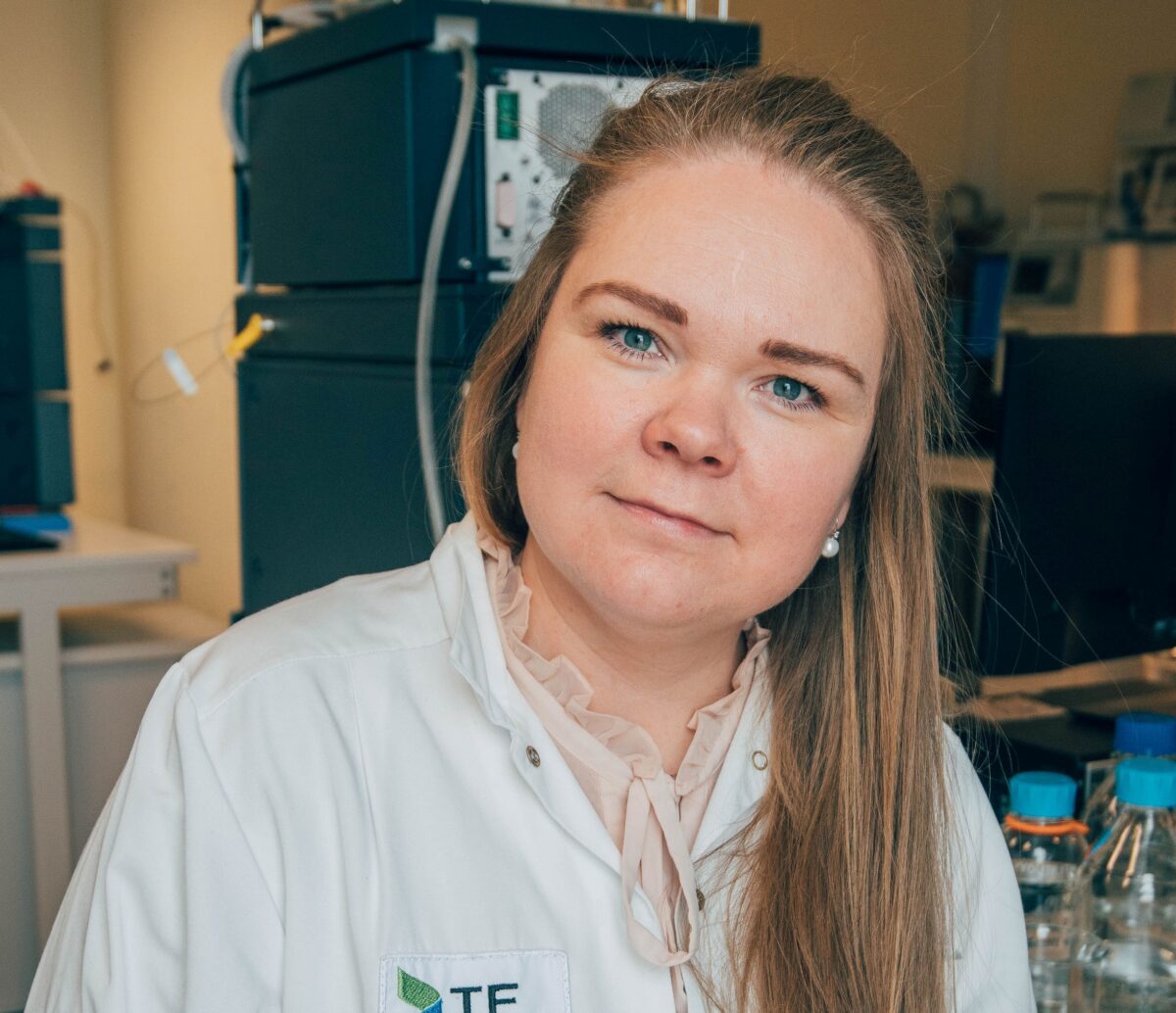TFTAK received a quarter of a million euro in funding from a recognized international fund to create a unique and authentic salmon scent, so that sustainable and delicious seafood can be produced from plant-based raw materials.
Climate warming and the continued growth of the world’s population make seafood an increasingly scarce food item every year. Already today, three times more seafood is imported into the European Union from elsewhere than can be produced within the EU. According to various forecasts, by 2030 the demand for seafood in the world will increase by 10-20 percent, which the producers themselves will no longer be able to satisfy, and tens of millions of tons of seafood will be missing from the food stalls every year.
According to Dr Sirli Rosenvald, the head of TFTAK protein research, meat alternatives development and sensory research teams, the researchers of their centre are commencing research and development of salmon aroma in the Mustamäe research laboratory in Tallinn precisely because they want to contribute to solving the ever-increasing food and environmental crisis. “Industrial fishing and aquaculture deplete species, pollute, and destroy important habitats. Science must come to the aid of the food crisis so that the ecosystem is preserved, and people are fed,” said Rosenvald.
According to her, the goal of TFTAK is to develop plant-based alternatives to meat and dairy products in laboratories that are not only for vegetarians, but for everyone, since they taste as good as animal foods. “Vegetable products solve the problem of food security in a broader sense, because local plant raw materials are used for food production, such as pea or faba bean protein, the cultivation of which is not much affected by crisis situations and which is sustainable,” said Rosenvald.
Already today, there are various alternative seafood products on the market, but they need to be significantly improved so that they taste and smell like the products that people are familiar with. “To get the salmon aroma as identical to the original as possible, we break down the samples into molecules, then our research centre expert team creates aroma profiles. We work through hundreds of aroma molecules and look for the 10 or 20 that are most important to the salmon aroma, closely related to taste and the whole dining experience – like a pan-searing melt-in-your-mouth salmon fillet,” she described.
Based on the information received, the salmon aroma is recreated from naturally occurring fatty acids using oils extracted from plants, algae, and microbes. The result is an ingredient that food manufacturers can add to plant-based or cultured fish.
The results of the research are made publicly available so that both start-up companies and already operating food companies can use the results to develop new products.
With the support of an international sustainable food development organization The Good Food Institute (GFI) Field Catalyst Grants, the research work of eight scientists in Europe and 21 in the world is funded. The aim of the program is to support innovative research to develop sustainable proteins and ways to prepare meat, seafood, and dairy products.
A total of 195 research projects applied for funding from the GFI, of which the TFTAK team’s salmon aroma project was funded with 250,000 euros. The assessment took into account the effciency of the development plan, the possibility of increasing volumes and the real impact of the results, the competence of the team and further plans.
Rosenvald has been involved in aroma analysis for 10 years and alternative protein products for the last 3 years. Her team has helped bring various meat alternative products to the Estonian market. Currently, Rosenvald’s team is participating in the global XPrize Feed the Next Billion competition in America, where they are developing a plant-based salmon substitute from pea protein. In the spring of this year, Rosenvald co-founded the start-up company FUNKI, which aims to bring new healthy and environmentally friendly protein products made from mycelium to the market.

